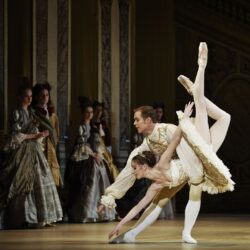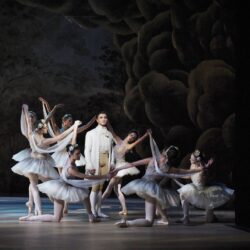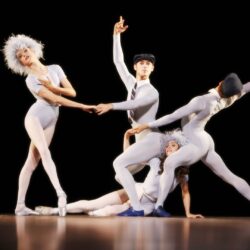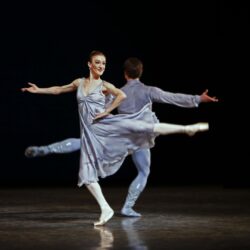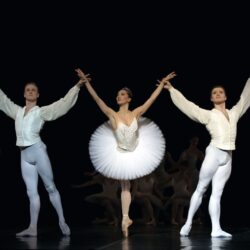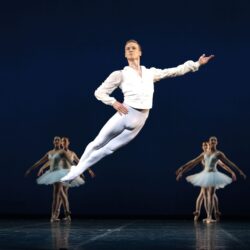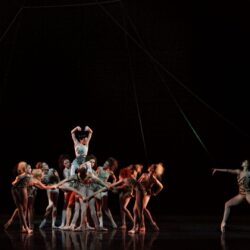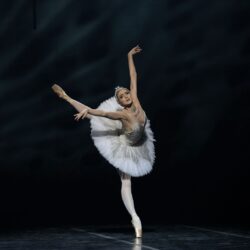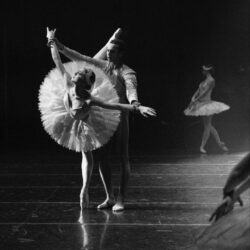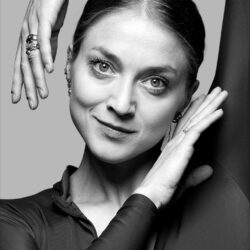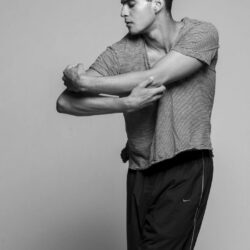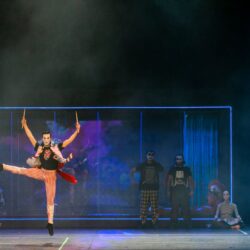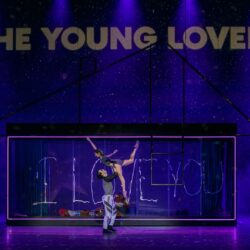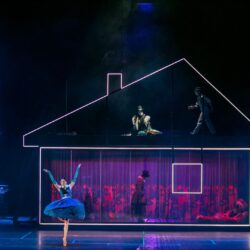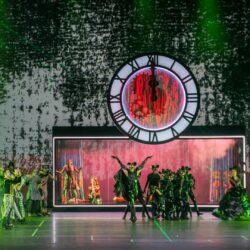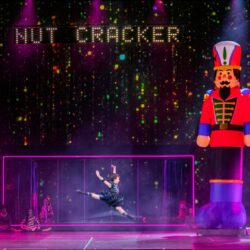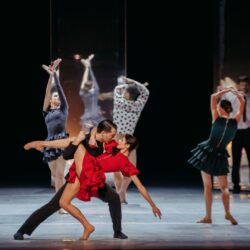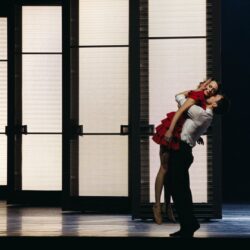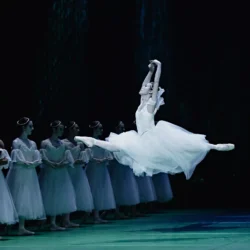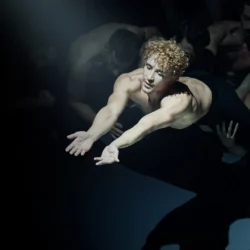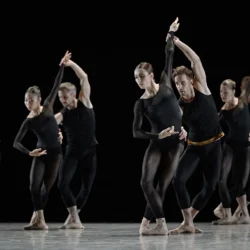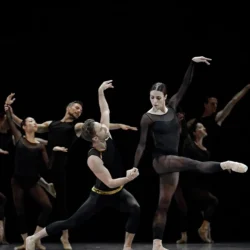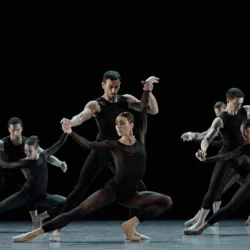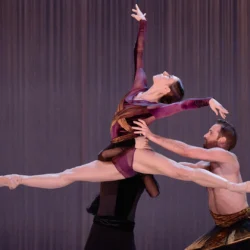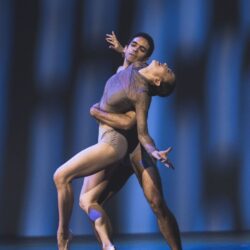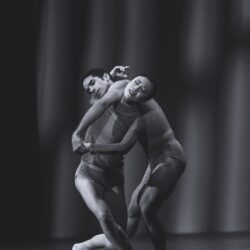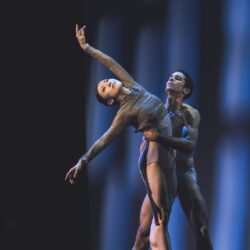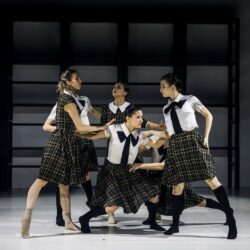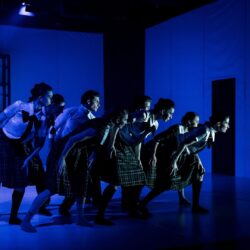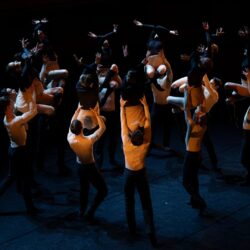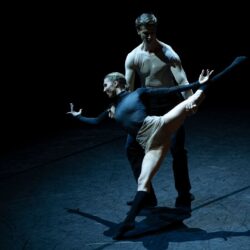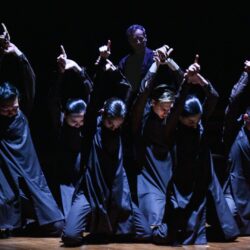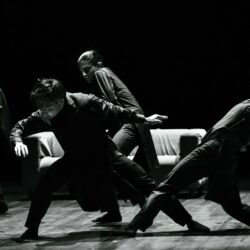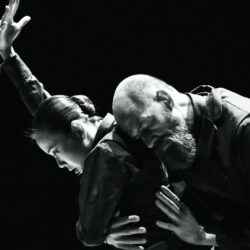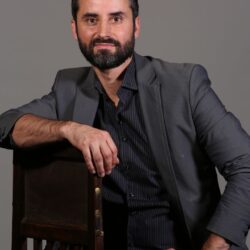Chorea 2024
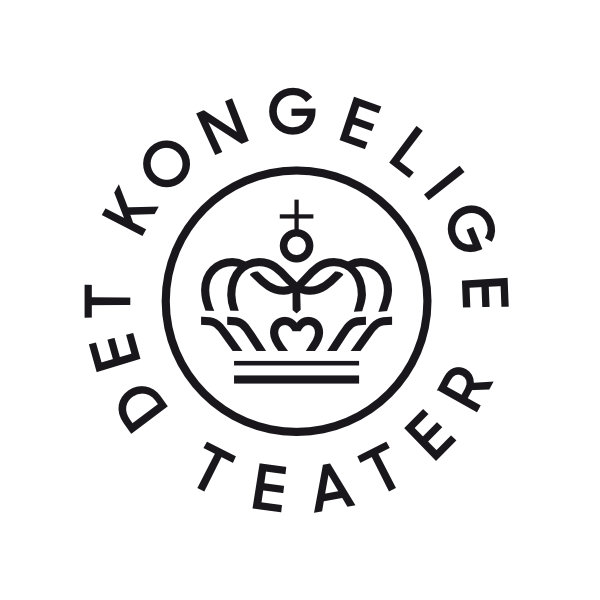
The Royal Danish Ballet
The Royal Danish Ballet is one of world’s best renowned ballet-companies. It was founded in 1748 at Kongens Nytorv where it is still located today.
The company is led by artistic director, Nikolaj Hübbe. The core of the The Royal Danish Ballet is the Bournonville-tradition, named after August Bournonville who led the company in the 1830’s.
Today The Royal Danish Ballet is a modern ballet-company with both Danish and international dancers.
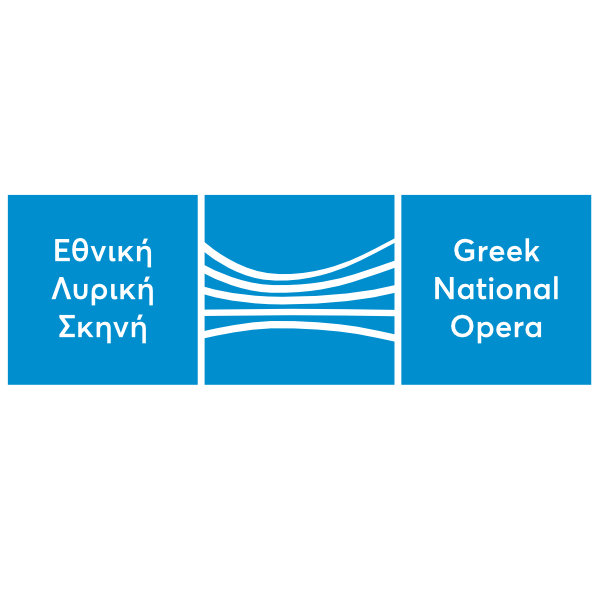
The Greek National Opera
The Greek National Opera (GNO) was founded in 1939 thanks to the initiative of Kostis Bastias, an author and journalist, director of the Royal (National) Theatre and Director of Arts and Letters in the authoritarian 4th of August Metaxas Regime. Its founding followed a 150-year long flourishing operatic tradition on the Ionian Islands, unoccupied by the Ottomans, as well as half a century of activity of the most important Greek private opera company, known as Hellenic Melodrama (1888-1943). In the beginning, the newly founded company operated as part of the Royal Theatre and gave performances at its main stage on Aghiou Constantinou street.
From the outset, the Greek National Opera repertoire comprised operas, operettas and ballets. The company was inaugurated with the operetta Die Fledermaus, followed by Giacomo Puccini’s Madama Butterfly. Maria Kalogeropoulou (Callas) made her debut with the company, interpreting lead roles in operas such as Giacomo Puccini’s Tosca, Ludwig van Beethoven’s Fidelio, Eugen D’Albert’s Tiefland and Manolis Kalomiris’ The Masterbuilder.
In 1944, before the Liberation from the German occupation, the company was separated from the National Theatre and embarked on its independent course, under the name Greek National Opera. It was housed at the old Olympia Theatre on Academias street. Its first production was Rhea, an opera by Greek composer Spyridon-Filiskos Samaras. The company’s first director was the composer Manolis Kalomiris.
In 1958 the newly-built Olympia Theatre was inaugurated with Verdi’s Aida. The company’s repertoire was significantly expanded in the years that followed, giving prominence to its educational mission, in keeping with a philosophy corresponding to today’s concept of cultural management. Every artistic period would comprise about 20 productions, while about 30 works in total received their Greek premiere. The repertoire covered all periods, from baroque to contemporary works, and all schools, from the Italian, French and German school to the national schools of Eastern Europe and the works of Greek composers. Important performances were staged at the Odeon of Herodes Atticus as well as at the Ancient Theatre of Epidaurus, starring Maria Callas.
This promising artistic development was interrupted by the military regime of 1967. In the seven-year period that followed the coup, the Greek National Opera introduced its regular annual monthly season in Thessaloniki, where almost all works of each artistic season were presented. After the restoration of democracy in 1974, a new generation of Greek artists were invited to the theatre, breathing new life to it. In the hard years of political transition, worthy directors have been at the helm of the GNO, supporting and ensuring its development and artistic growth, despite the financial and institutional challenges. Converting the GNO to a Legal Entity of Private Law (1994) boosted its development even further. A policy of co-productions with leading opera houses from abroad was gradually developed and started flourishing from 2000 onwards. The repertoire’s substantial expansion was followed by a visual upgrade of the operatic spectacles as well as by the organization’s international promotion. In parallel, the policy of extroversion, through outreach events throughout the country, has led to audience expansion.
On 23 February 2017 the Stavros Niarchos Foundation Cultural Center, which comprises the new home of the Greek National Opera, was handed over to the Greek state. The company’s first performances were presented in both of its venues, the Stavros Niarchos Hall and the Alternative Stage, during the trial period, in spring 2017.
Our mission is to offer audiences – at home and abroad – high-calibre productions, by presenting operas, ballets, operettas, operas for children and music recitals, among others.
Our organisation also encompasses the GNO Professional School of Dance, as well as educational programmes aimed at all age groups.
Performances are held at Greek National Opera’s two stages at the Stavros Niarchos Foundation Cultural Center (Stavros Niarchos Hall and Alternative Stage), as well as at the open-air Odeon of Herodes Atticus.
The repertory of Greece’s only opera company covers four centuries of lyrical theatre, from the works of Claudio Monteverdi to those of contemporary composers.
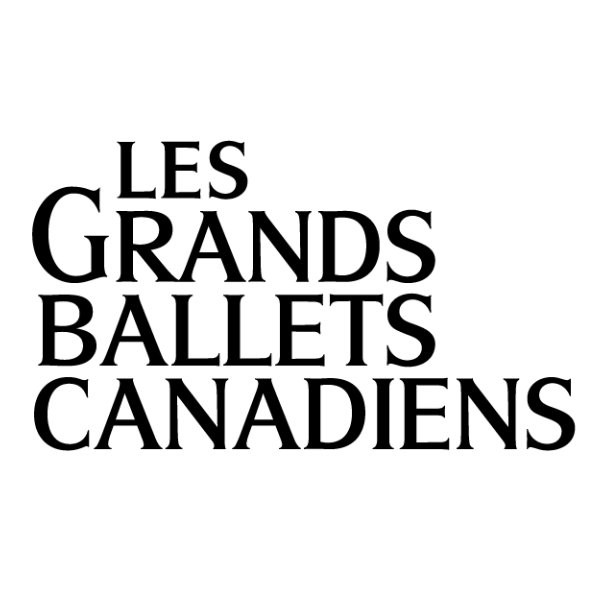
Les Grands Ballets Canadiens
Les Grands Ballets Canadiens was founded in Montréal in 1957 by Ludmilla Chiriaeff, who dreamed of creating Québec’s first professional ballet company to show everyone the beauty of dance. It has since evolved into a creation and production company whose mission is to infuse the spirit of classical ballet into all types of dance.
Today, the ballet company includes some fifty Canadian and international dancers, and just as many musicians in Les Grands Ballets Orchestra. A cornerstone of the Québec dance scene, Les Grands Ballets is located in the heart of Montréal’s Quartier des Spectacles, in Édifice Wilder – Espace Danse, which contains creative spaces, administrative offices and a costume studio.
Ivan Cavallari has served as artistic director of Les Grands Ballets since 2017. With Ivan at the helm, the company’s repertoire is ever-expanding to both showcase the great ballet classics and explore new dance styles, alongside leading and emerging contemporary creators.
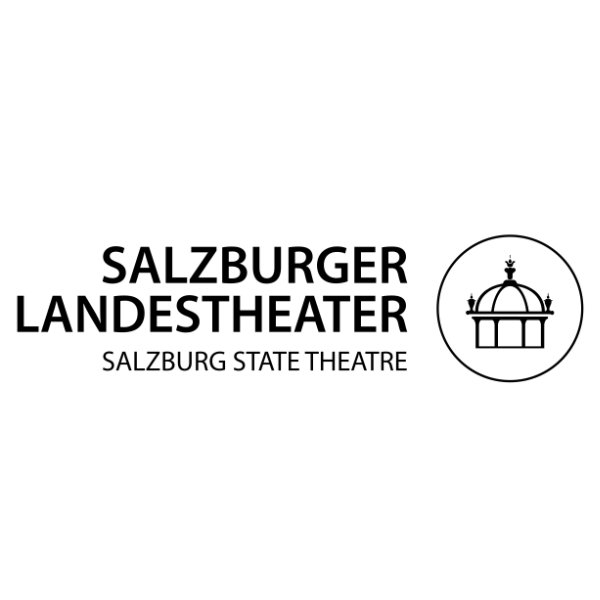
Ballet of Salzburg State Theatre
The Salzburg State Theatre is the leading and most influential institution for the performing arts in the City and State of Salzburg with a full season. The theatre is home to opera, theatre, dance and the theatre for young audiences “Junges Land”, four vivacious and distinguished companies together under one roof. The theatre is playing 400 performances each season which stretches from September to June.
The main theatre building is located next to the Mirabell Gardens and seats an audience of 707. A total of 25 new productions are presented at the State Theatre each season. Alongside modern and contemporary productions, classic productions in all sectors are staged. 340 persons from 35 different countries work at the State Theatre.
Since 2017/2018 Reginaldo Oliveira is Ballet director and choreographer of Salzburg State Theatre.
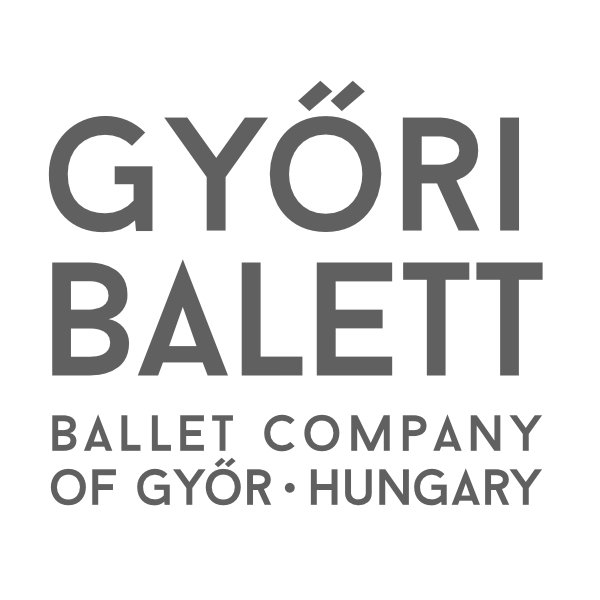
Balet Győr
In 1979, the graduating class of the Hungarian State Ballet Institute decided to stay together and found a troupe. They won over Iván Markó, who said goodbye to the world-famous band of Maurice Béjart. He came to Győr and became the leader of the band.
In 1991, with the departure of the founding director, János Kiss took over the management of the troupe, and thus the Győr troupe entered a new era. Even after the change of leader, the company was able to renew itself, raise the artistic standard year after year, and open an ever-wider horizon to its audience. His persistent artistic work of the past two and a half decades has been crowned with new successes.
In recent seasons, the company has worked with renowned choreographers such as Robert North, Ben Van Cauwenbergh, Christopher Bruce, Cayetano Soto, jr. Gyula Harangozó, András Lukács, Leo Mujic, Gustavo Ramirez Sansano or György Vámos.
In 2015, with the appointment of former dancer László Velekei as artistic director, a new era was once again welcomed into the life of the troupe. The young choreographer’s name is associated with his own pieces presented by the Győri Ballet: in memory of Ilona Tóth ’56, Kodály, Ne bánts!, A terem, Belső hangok, Romance – for the works of Zoltán Kodály, A skarlát étupé and PianoPlays – etudes for the works of Liszt and Wagner.
On July 1, 2020, László Velekei became the third director of the company.

Albarden Company
Created by the choreographer Claire PERNETTE, 38 years old.
Music composer, she got graduated as a dance teacher in Paris in 2013, and then danced for Bea Buffin and in the CobosMika Junior Company.
Since 2018, she is contemporary dance teacher in the CobosMika Company Seeds program, and choreographs for the students (Ambas in 2022, Holy Smoke 2024) and for her own company « Albarden Company » (Run 2019, Treasure Box 2021, Volver 2022, Do you copy 2023).

INVERSEDANCE
The INVERSEDANCE | Zoltan Fodor Company was founded by the Performing and Creative Arts Foundation after several years of operating as a project-company. Its members are awarded, professional dancers lead by the dancer-choreographer Zoltán Fodor.
Zoltán Fodor made his debut as a choreographer in 2005 by creating a piece for the Budapest Dance Theatre and later on he has collaborated in several indenpendent projects and made choreographies for numerous long-established schools, independent- and national companies.
As a performing arts organization we are open to all initiatives with the goal to help everyone, especially the younger generations open up to become more appreciative of the arts. Using the language of modern-contemporary dance, we aim to create performances that reflect on the matters of past and present, and while calling to play and get involved, they are intriguing and thought-provoking at the same time.
The company’s repertoire contains dance performances for both adult and young audiences. Our goal beyond the national dance scene is to participate at the international level, so that we too can contribute to the recognition this beautiful art form deserves.



